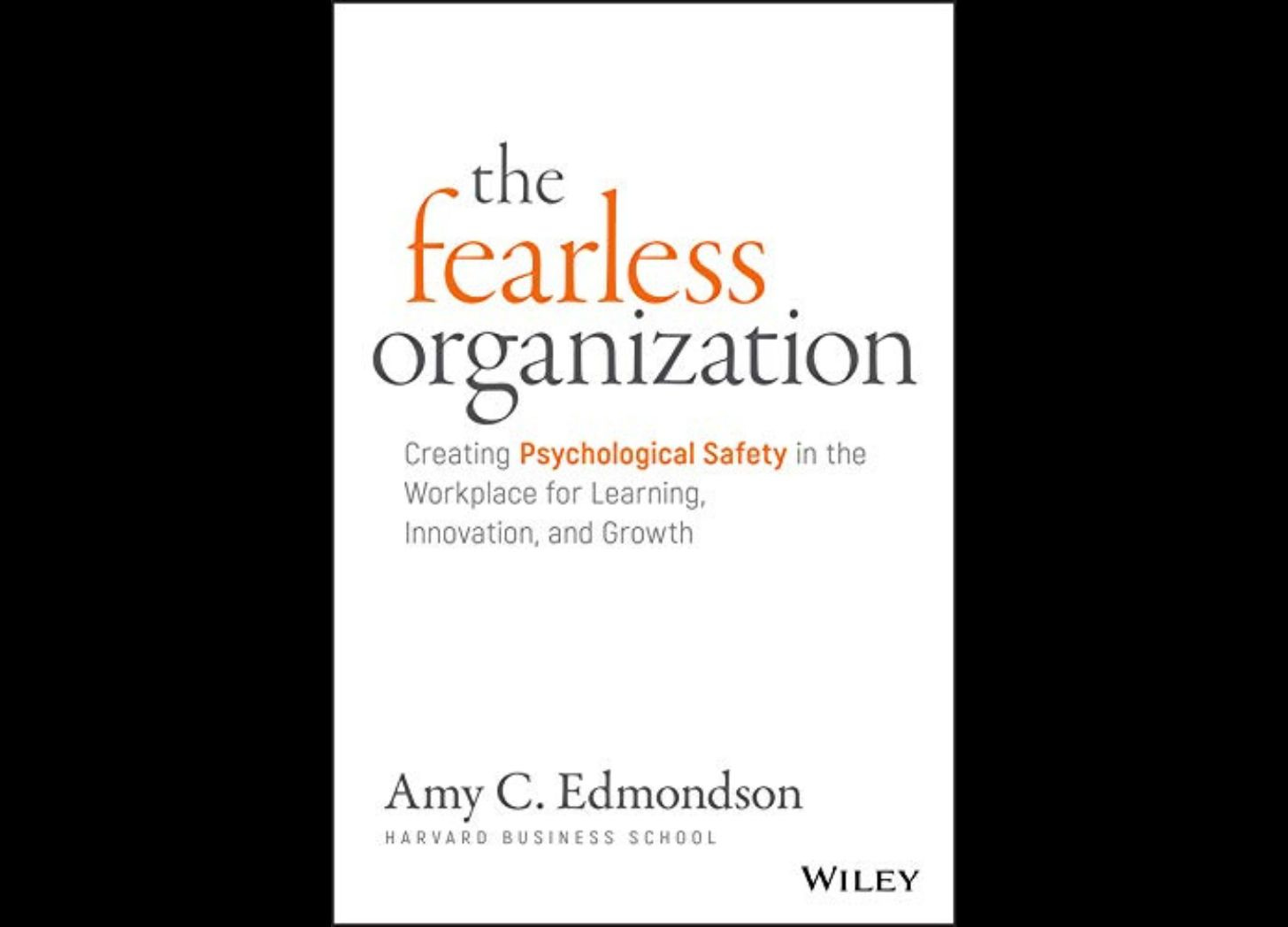Book Byte #27 "The Fearless Organization" by Amy C. Edmondson
Creating Psychological Safety in the Workplace for Learning, Innovation, and Growth
📣 Curious Quote from the Author:
“Hierarchy (or, more specifically, the fear it creates when not handled well) reduces psychological safety.”
“Cheating and covering up are natural by-products of a top-down culture that does not accept “no” or “it can't be done” for an answer. But combining this culture with a belief that a brilliant strategy formulated in the past will hold indefinitely into the future becomes a certain recipe for failure.”
“For knowledge work to flourish, the workplace must be one where people feel able to share their knowledge! This means sharing concerns, questions, mistakes, and half-formed ideas.”
“Finding out that you are wrong is even more valuable than being right, because you are learning.”
“Low levels of psychological safety can create a culture of silence. They can also create a Cassandra culture – an environment in which speaking up is belittled and warnings go unheeded.”
“To understand why psychological safety promotes performance, we have to step back to reconsider the nature of so much of the work in today's organizations. With routine, predictable, modular work on the decline, more and more of the tasks that people do require judgment, coping with uncertainty, suggesting new ideas, and coordinating and communicating with others. This means that voice is mission critical. And so, for anything but the most independent or routine work, psychological safety is intimately tied to freeing people up to pursue excellence.”
“Psychological safety is broadly defined as a climate in which people are comfortable expressing and being themselves. More specifically, when people have psychological safety at work, they feel comfortable sharing concerns and mistakes without fear of embarrassment or retribution. They are confident that they can speak up and won't be humiliated, ignored, or blamed. They know they can ask questions when they are unsure about something. They tend to trust and respect their colleagues. When a work environment has reasonably high psychological safety, good things happen: mistakes are reported quickly so that prompt corrective action can be taken; seamless coordination across groups or departments is enabled, and potentially game-changing ideas for innovation are shared. In short, psychological safety is a crucial source of value creation in organizations operating in a complex, changing environment.”
“What I hope is clear at this point is that you don't have to be the boss to be a leader. The leader's job is to create and nurture the culture we all need to do our best work. And so anytime you play a role in doing that, you are exercising leadership.”
“High standards in a context where there is uncertainty or interdependence (or both) combined with a lack of psychological safety comprise a recipe for suboptimal performance.”
“Often in meetings, I will ask people when we're discussing an idea, “What did the dissenter say?” The first time you do that, somebody might say, “Well, everybody's on board.” Then I'll say, “Well, you guys aren't listening very well, because there's always another point of view somewhere and you need to go back and find out what the dissenting point of view is.”
“In framing silence as an unethical choice, Dalio is taking a more extreme stance than I have adopted. But it's worth reflecting on this idea, which to me implies that you owe your colleagues the expression of your opinion or ideas; in a sense, those ideas belong to the collective enterprise, and you therefore don't have the right to hoard them.”
“failure of an employee to speak up in a crucial moment cannot be seen. This is true whether that employee is on the front lines of customer service or sitting next to you in the executive board room. And because not offering an idea is an invisible act, it's hard to engage in real-time course correction. This means that psychologically safe workplaces have a powerful advantage in competitive industries.”
📚 Cognition of the Book’s Big Idea:
Success in today's workplace depends on the ability to take measured risks and stimulate new debates, which is impossible when people feel underappreciated and afraid. However, when people in positions of responsibility begin to welcome varied perspectives and encourage learning from failures, a work environment emerges in which…

